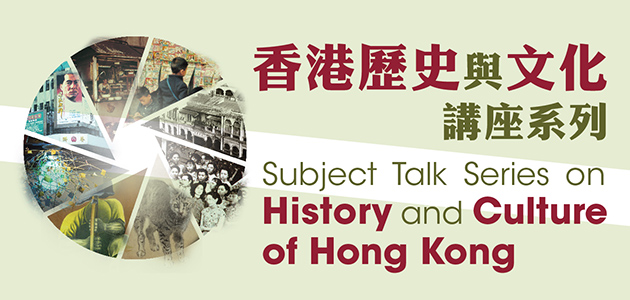All Events
- Highlighted Programmes
- All Events
- Hong Kong Reading Week
- Events at Hong Kong Central Library
- Summer Library Festival
- Reading Activities
- Literary Activities
- Awards / Competitions
-
Talks / Workshops
- Talk Series on "Hong Kong Memories: Rediscovering Hong Kong's History and Culture"
- Subject Talk Series on Life & Death Education
- Philosophy Talk
- “A Century of Architecture: The Story of Tung Wah Museum” Subject Talks
- “Integrating Past with Present: The Journey of Tung Wah’s Intangible Heritage through Time” Subject Talks
- “Centred on People: Specialist Healthcare Services and Everyday Life” Subject Talks
- “Keeping up with the Times: Mapping the Development of Hong Kong’s Healthcare Services through the Archives” Subject Talks
- Subject Talks on Cosmopolitan Hong Kong
- Subject Talk Series on History and Culture of Hong Kong
- Lecture Series on Chinese Classics and Their Contemporary Resonances
- Other Talks and Workshops
- IT Activities
- Storytelling for Children
- Exhibitions
-
Hot Topics
- Storytelling for Children (Cantonese)
- Storytelling for Children
- Activities in the Chinese Culture Promotion Series
- Storytelling for Children (Cantonese)
- Talk on Chinese Classics
- Storytelling for Children (English)
- Other Exhibitions
- Other Literary Activities
- Chinese Poetry Writing Competition Exhibition
- Thematic Storytelling Workshops
Small Industries and Community in To Kwa Wan
| Date: | 2022/11/12 (Saturday) |
| Time: | 3:30 p.m. to 5:30 p.m. |
| Venue: | Kowloon Public Library (Extension Activities Room) |
| Speaker: | Dr. WONG Wai-ling |
| Organiser: | Hong Kong Public Libraries |
| Remarks: | Talk conducted in Cantonese. Limited seats. Free admission by phone at 2926 4055 from 29.10.2022 (Saturday). (Video Recording URL www.hkpl.gov.hk/SmallInd&CommuInTKW would be available for access from 23 December 2022 7:00 p.m.) |
| Enquiry Telephone Number: | 2926 4055 |
The Second World War marks the watershed in the industrial development of To Kwa Wan. Most of its pre-war industries were obnoxious and dangerous, such as the processing or production of leather, fur, cow bones and fire crackers while its post-war counterparts were mainly light industries such as the manufacturing of cotton textiles and clothing. However, To Kwa Wan has seldom been mentioned in the industrial development of Hong Kong. In fact, the district was once an industrial area in which the streets were packed with factory workers during morning and evening commuting hours and lunch time. The speaker compiled a collection of stories about the personal growth and family life of residents in the community by interviewing the old neighbours of the district. These stories are marked by industrial elements such as small factories, contracting system, original equipment manufacturing and people who persevered to work hard and seized the opportunities to set up their own business, demonstrating that industries and people’s livelihood in the community are inextricably intertwined.


